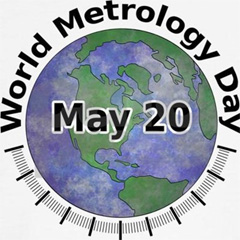The International Prototype Kilogram was commissioned by the General Conference on Weights and Measures (CGPM) under the authority of the Metre Convention (1875), and in the custody of the International Bureau of Weights and Measures (BIPM) who hold it on behalf of the CGPM. After the International Prototype Kilogram had been found to vary in mass over time relative to its reproductions, the International Committee for Weights and Measures (CIPM) recommended in 2005 that the kilogram be redefined in terms of a fundamental constant of nature. At its 2011 meeting, the CGPM agreed in principle that the kilogram should be redefined in terms of the Planck constant. The decision was originally deferred until 2014; in 2014 it was deferred again until the next meeting. There are currently several different proposals for the redefinition (some of which have been abandoned); these are described in the Proposed Future Definitions section below.
World Metrology Day is an annual celebration of the signature of the Metre Convention on 20 May 1875 by representatives of seventeen nations. The Convention set the framework for global collaboration in the science of measurement and in its industrial, commercial and societal applications. The original aim of the Metre Convention - the world-wide uniformity of measurement - remains as important today as it was in 1875.
The World Metrology Day project is currently realized jointly by the International Bureau of Weights and Measures and the International Organization of Legal Metrology together with PTB International Technical Cooperation.
Source: worldmetrologyday.org | wikipedia.org



